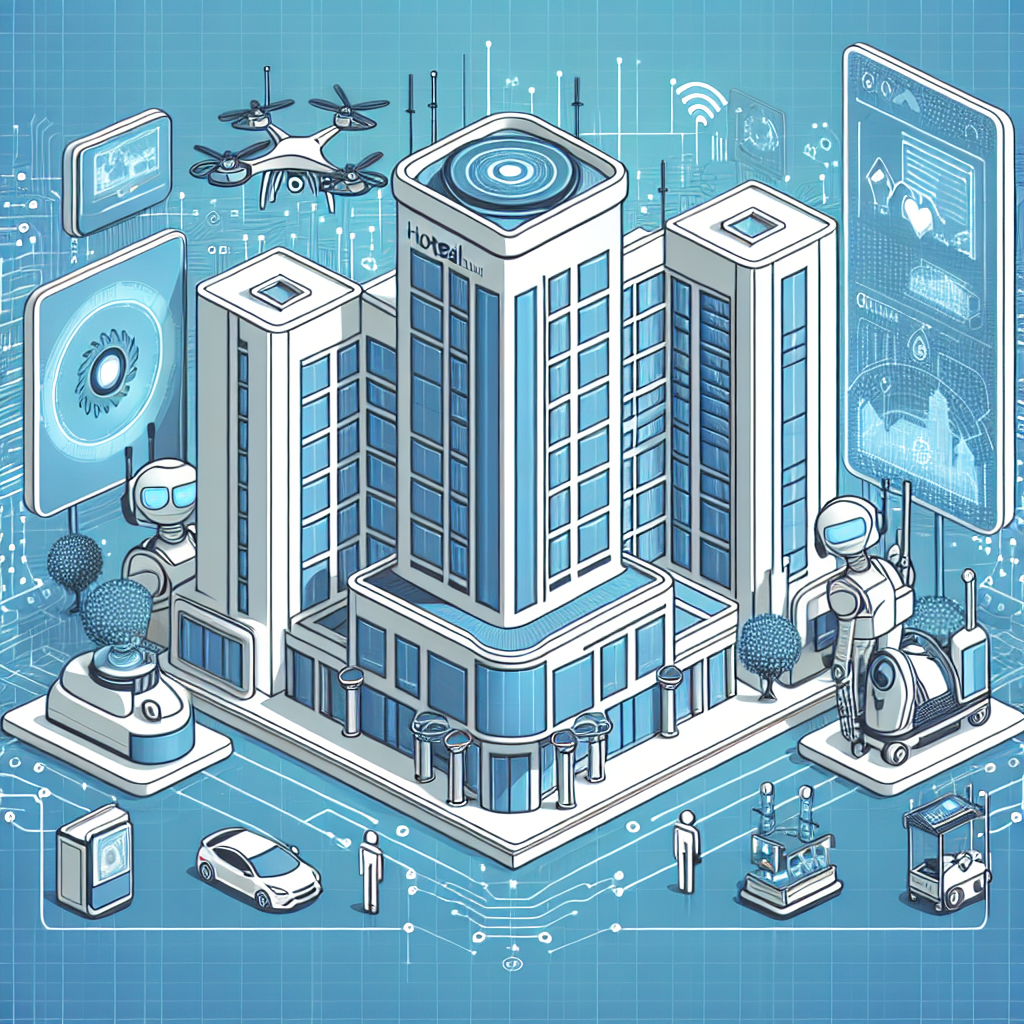In the hospitality industry, hotels are constantly looking for ways to improve their operations and provide a seamless experience for their guests. One way hotels can achieve this is by implementing artificial intelligence (AI) for predictive maintenance and equipment monitoring. By leveraging AI technology, hotels can proactively manage their equipment and prevent potential breakdowns, ultimately saving time and money while ensuring a comfortable stay for guests.
Predictive maintenance involves using data and AI algorithms to predict when equipment is likely to fail, allowing for preventative maintenance to be carried out before any issues arise. This proactive approach to maintenance can help hotels avoid costly downtime and repairs, as well as improve the overall reliability of their equipment.
Equipment monitoring, on the other hand, involves using sensors and AI technology to track the performance of equipment in real-time. By monitoring key metrics such as temperature, pressure, and energy consumption, hotels can identify potential issues before they escalate, leading to improved efficiency and reduced energy costs.
Implementing AI for predictive maintenance and equipment monitoring in hotels can bring a range of benefits, including:
1. Improved equipment reliability: By proactively identifying and addressing issues before they escalate, hotels can improve the reliability of their equipment and reduce the risk of unexpected breakdowns.
2. Reduced downtime: Predictive maintenance allows hotels to schedule maintenance tasks at convenient times, minimizing downtime and ensuring that guests are not inconvenienced by equipment failures.
3. Cost savings: By preventing equipment failures and reducing downtime, hotels can save money on costly repairs and replacements.
4. Enhanced guest experience: By ensuring that equipment is always running smoothly, hotels can provide a better experience for their guests and enhance their reputation for quality service.
5. Increased efficiency: By monitoring equipment performance in real-time, hotels can identify opportunities to improve efficiency and reduce energy consumption, leading to cost savings and environmental benefits.
To implement AI for predictive maintenance and equipment monitoring in hotels, the following steps can be taken:
1. Identify key equipment: Start by identifying the most critical equipment in your hotel that would benefit from predictive maintenance and monitoring, such as HVAC systems, refrigeration units, and elevators.
2. Install sensors: Install sensors on the identified equipment to collect data on key performance metrics, such as temperature, pressure, and energy consumption.
3. Connect to AI platform: Connect the sensors to an AI platform that can analyze the data in real-time and provide insights on the health and performance of the equipment.
4. Set up alerts: Configure the AI platform to send alerts when any issues are detected, so that maintenance teams can take proactive action to address them.
5. Schedule maintenance tasks: Use the insights provided by the AI platform to schedule preventative maintenance tasks at convenient times, minimizing disruption to hotel operations.
6. Monitor performance: Continuously monitor the performance of the equipment and adjust maintenance schedules as needed to optimize efficiency and reliability.
By following these steps, hotels can leverage the power of AI to improve their maintenance practices and ensure that their equipment is always running smoothly.
FAQs:
Q: How does AI predict equipment failures?
A: AI predicts equipment failures by analyzing data collected from sensors installed on the equipment. By monitoring key performance metrics in real-time, AI algorithms can identify patterns and anomalies that indicate when a piece of equipment is likely to fail.
Q: How can AI benefit hotels in terms of maintenance?
A: AI can benefit hotels in terms of maintenance by proactively identifying and addressing equipment issues before they escalate. This can help hotels avoid costly downtime and repairs, as well as improve the reliability and efficiency of their equipment.
Q: What types of equipment can benefit from predictive maintenance and monitoring?
A: Any critical equipment in a hotel can benefit from predictive maintenance and monitoring, including HVAC systems, refrigeration units, elevators, and water heaters. By monitoring key performance metrics, hotels can ensure that these essential systems are always running smoothly.
Q: What are the costs associated with implementing AI for predictive maintenance in hotels?
A: The costs associated with implementing AI for predictive maintenance in hotels can vary depending on the size of the hotel and the complexity of the equipment being monitored. However, the long-term benefits of improved reliability, reduced downtime, and cost savings often outweigh the initial investment.
In conclusion, implementing AI for predictive maintenance and equipment monitoring in hotels can bring a range of benefits, including improved reliability, reduced downtime, cost savings, enhanced guest experience, and increased efficiency. By leveraging the power of AI technology, hotels can proactively manage their equipment and ensure a seamless experience for their guests.

